Nine truths in honor of the truth that is Usurpation Day, 9 April 1792.
0 Comments
 Johnny Reb and Gus Yank Berryvillin': Hail Johnny Reb and Gus Yank Berryvillin': Hail Part X of XIII “… Happy Constitution Day Yank.” “Smudge Day Johnny.” “Yupper.” “Tell the story again, about how George had the founders put a smudge on the Constitution.” “I thought you might ask Gus.” “Oh?” “Yes.” “So you have something prepared?” “Let me present, Constitution Day 1787.” “Let’s go Reb.” “Nowhere to go Yank, as we can story-tell right here.” “Okay.” “Conjure and imagine, if you will, the interior of … INDEPENDENCE HALL, PHILADELPHIA PA – DAY 17 SEP 1787 GEORGE WASHINGTON (55) is chairing the Constitutional Convention and it is the last day, signing day, 17 September 1787. The hall is full of founders, such as ALEXANDER HAMILTON (30), JAMES MADISON (36), and BENJAMIN FRANKLIN (81); they are all gathered to conclude the convention and begin their journeys home. The (almost) completed Constitution is read aloud as well as a speech written by Franklin. WE HEAR the MURMUR of restive and attentive voices as NATHANIAL GORHAM (49), someone known to all in the room, rises to speak; he is a Massachusetts delegate, Chairman of the Whole during the convention, and Washington acknowledges him from the podium. WASHINGTON I see Nathanial, the honorable Mr. Gorham, would like to speak. GORHAM Gentlemen, if it is not too late, I would like that the clause declaring, 'the number of Representatives shall not exceed one for every forty Thousand,' be reconsidered. WASHINGTON You mean the representation clause. GORHAM Yes, and since it produced so much discussion, perhaps we should reconsider it. WASHINGTON Your proposal? GORHAM For a greater representation of the people, I propose we strike out 'forty' Thousand and insert 'thirty' Thousand. HAMILTON Agreed! FRANKLIN Yes! Madison nods agreement. WASHINGTON (pauses) Although my situation has hitherto restrained me from offering sentiments on questions before the convention, and perhaps ought to now – LAUGHTER. I can’t forbear expressing my wish that the change proposed might take place. HAMILTON Say more. WASHINGTON It is much desired that the objections to the plan recommended might be as few as possible, and the smallness of the proportion of Representatives was considered by many members of the Convention, an insufficient security for the rights and interests of the people. FRANKLIN Yes. WASHINGTON The representation ratio had always seemed to me to be the exceptionable part of the plan, and late as the present moment was for admitting amendments, I believe it of so much consequence that it would give much satisfaction to see it adopted. The founders then vote and the change is unanimously accepted. Madison and a clerk make the edit to the Constitution by altering the word 'forty' into 'thirty,' and in doing so leave a smudge.” “Thanks for The Story of Smudge Day Johnny.” “You’re welcome.” “What’s the word on the usurpers and the surrender?” “Merrick Garland.” “Who’s that?” “The Attorney General for We the People.” “Word is?” “We’ve asked for support.” “I like it.” “Also, there’s some news about Sarah.” “Berry?” “Right, …” Next Up: 1 October and part XI of the series Johnny Reb and Gus Yank Berryvillin’: Sarah. Posted by Bryan W. Brickner  Johnny Reb and Gus Yank Berryvillin': Constitutionally Johnny Reb and Gus Yank Berryvillin': Constitutionally Part VII of XIII “… Something is happening Gus.” “Tell me more Reb.” “There doesn’t appear to be any resistance.” “No one will defend the 435.” “Correct.” “Have the usurpers surrendered to the Constitution?” “No.” “I remember that feeling.” “What do you remember?” “Well, as Gus Kotka, I didn’t know about the thirty Thousand.” “Right.” “But as Gus Yank, well lots of Yanks knew, just like Jefferson Davis knew.” “I hear ya.” “Since we didn’t surrender to the Constitution until later …” “… It makes sense they are feeling what we felt.” “What would George say?” “Political theory: George would ask Madison.” “James would say?”  Johnny Reb and Gus Yank Berryvillin': Willing Johnny Reb and Gus Yank Berryvillin': Willing “Build a coalition of the constitutionally willing.” “Sounds like us Reb.” “Madison said there is a peculiarity in the Constitution.” “What peculiarity?” “With the Senate designed to represent states, and the House population, the peculiarity is that the largest populated states will align against the smallest concerning representation.” “California vs. Delaware you’re saying Reb.” “Texas vs. Rhode Island.” “I understand.” “That’s what’s happening Yank.” “The formation of a coalition of the constitutionally willing.” “In support of constitutional representation and the Seventh Amendment.” “America’s been doing We the People wrong for 230 years.” “Time to do We the People right.” “Let’s visit a Reb.” “Over here Yank, and up close …” Next Up: 21 July and part VIII of the series Johnny Reb and Gus Yank Berryvillin’: Greenland Gap. Posted by Bryan W. Brickner 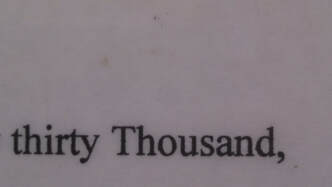 Jefferson Davis knew, so Lincoln knew. Since Lincoln knew, Grant knew. Since Grant knew, Wilson knew. Since Wilson knew, Roosevelt knew. Since Roosevelt knew, Kennedy knew. Since Kennedy knew, … So ask yourself: Since Jefferson Davis knew how to represent We the People like George Washington and the founders, why don’t you? *Next Up: 3 January 2020 and a 2020. Posted by Bryan W. Brickner 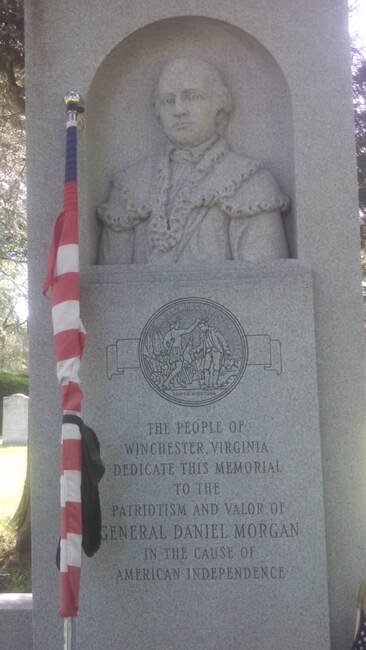 Johnny Reb and Gus Yank RMH: Mischief Makers Johnny Reb and Gus Yank RMH: Mischief Makers Part 8 of 13 “… Elbridge Gerry.” “Never heard of him.” “You will.” “Listening.” “Gerry was in the House on 9 April.” “Usurpation Day.” “Representing Massachusetts.” “Yank.” “A mischief-making Yank.” “Say more Reb.” “Gerry was also at the Constitutional Convention.” “With the founders?” “Yup.” “Did he sign?” “Nope.” “Why Johnny?” “Gerry didn’t sign ‘cuz he said democracy was the worst of all political evils.” “Evil?” “Evil.” “Go on.” “Then on 9 April 1792 Gerry supports the usurpation.” “Leader thereof?” “Evil is as evil does.” “Chief Mischief Maker then.” “Correct Gus.” “One hears the truth and does it.” “The other hears the truth and quibbles.” “Amen.” “Gerry also predicted our civil war.” “When?” “The first Constitution Day.” “So Gerry didn’t sign the Constitution on 17 September, said there’ll be civil war, and then led the usurpation five years later.” “And there’s more.” “Constitutional sinner.” “Yup.” “What’s with the circle Johnny?” “Let’s look closer …” *Next Up: 2 October and part 9 of Johnny Reb and Gus Yank Revisit Mount Horeb: Jefferson Davis. Posted by Bryan W. Brickner 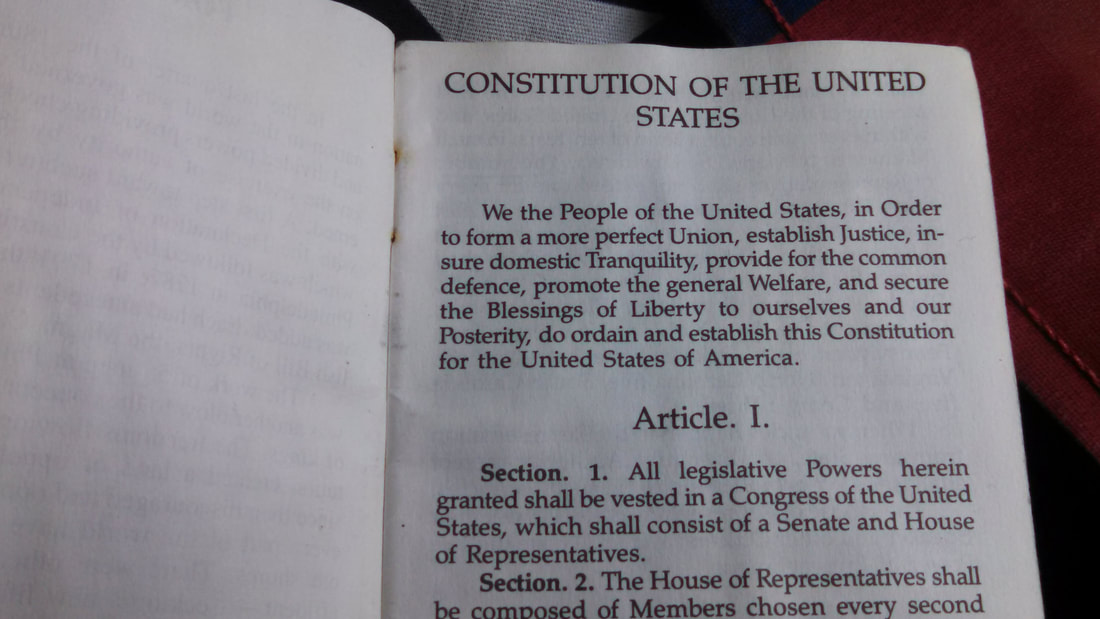 George Washington's Textbook George Washington's Textbook Today is Usurpation Day, which first happened on 9 April 1792, when the US House of Representatives broke their word and usurped a power not granted by law. What created that usurpation moment was President Washington’s first veto, which was also the first veto ever under our Constitution. President Washington, being a surveyor and Freemason, knew numbers; he also knew the Constitution, which he helped write, and which clearly states: “shall not exceed one for every thirty Thousand” (Article 1, Section 2, Clause 3). What shall not exceed thirty Thousand? That would be the number of Representatives due a state for its enumeration. In the first attempt to use the enumeration, Congress sent President Washington a bill that dropped the fraction; if a state had thirty Thousand and one, they were due, according to the phrase “shall not exceed,” another Representative. Instead, Congress dropped the fraction and did not give certain states another Representative. Washington vetoed the bill. The House of Representatives, unable to override President Washington’s veto, passed a new bill for representation on 9 April 1792, the first usurpation law, and used a divisor of “thirty-three” Thousand for representation instead. President Washington also knew of the Bill of Rights and its Article the first, the one about moving said representation ratio to forty and then fifty Thousand. Washington either let the new representation bill become law without signing it, or signed it knowing he had made his point and believing this issue would be resolved with the passage of Article the first: this has yet to happen. Washington was a creator of We the People and the idea of representing ourselves according to numbers. Twenty-twenty is the next enumeration. Why not now ‘Merica? Why not you? Time we did it, time to count the people, divide by thirty Thousand like George taught, and see what We the People really look like … according to numbers. *Next Up: 9 May and a 2020 We the People update. Posted by Bryan W. Brickner ~.~ “Those who toy with life never attain mastery. Self-discipline and courageous contemplation are necessary steps to understanding. However, do not become overzealous and drill yourself into the ground.” From Brian Browne Walker’s The I Ching or Book of Changes: A Guide to Life’s Turning Points (1992) 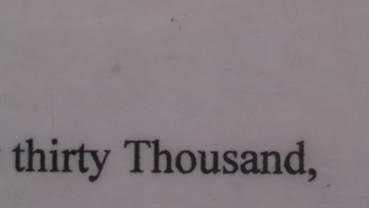 Absenting creates a presence: presenting creates an absence. This creates a political problem, meaning one of value. John Locke, James Madison and Robert Dahl were political theorists who worked on this problem, the problem of a presence creating an absence (and vice versa). Locke’s work presented liberalism and a way for particular groups to make absent other groups; this has worked against the likes of tribes, nation-states and monarchies. Madison’s work presented the US Constitution and a way for a particular group (We the People) to make present and absent other groups (representation); this is done via the decennial census and the ratio of “one Representative for every thirty Thousand.” Madison’s presence is law, yet absented by the usurpation. Dahl is simple, so to speak: he absented Madison’s presence by ignoring the “thirty Thousand” found in Article 1, Section 2, Clause 3. This makes Yale’s Professor Dahl the 20th century political theory front man for the representation usurpation; the 21st century Yale front man for the usurpation is Sterling Professor of Law Akhil Reed Amar. Amar is simple too, so to speak: he just argues / presents by absenting one of the two shalls in the aforementioned Article. Viewed from the past, the constitutional concept “We the People” has been an absent presence; viewed from today, it looks like a presenting presence; viewed from the future, that would be a constitutional We the People and an end to the representation usurpation, or simply, 2020. *Next Up: 14 November and a new pamphlet release, A Dissenting Opinion from Johnny Reb and Gus Yank about George Thomas. Posted by Bryan W. Brickner  Webs and Ways and Knowing Webs and Ways and Knowing On 17 September 1787, everyone in the room knew the meaning of Article 1, Section 2, Clause 3: “The Number of Representatives shall not exceed one for every thirty Thousand, but each State shall have at Least one Representative.” Alexander Hamilton knew. Dude named Benjamin Franklin knew. James Madison, he knew. George Washington knew, as the “thirty” was a wish of his. The founders, all 39 of them, knew what they were signing on that September day. Three dissenters knew too, as they withheld their signatures because of what they didn’t want to sign. The Constitution was then sent to and ratified by all 13 independent states, so they all knew. What did they know? They knew that “We the People” was a constitutionally created way, one recreated every ten years. They also knew that along that way there would be webs. Webs are things that snare. To avoid webs, stay on the way, the We the People way. Happy Constitution Day All! *Next Up: A 2020 political theory update on 10 October, Locke, Madison and Dahl. Posted by Bryan W. Brickner 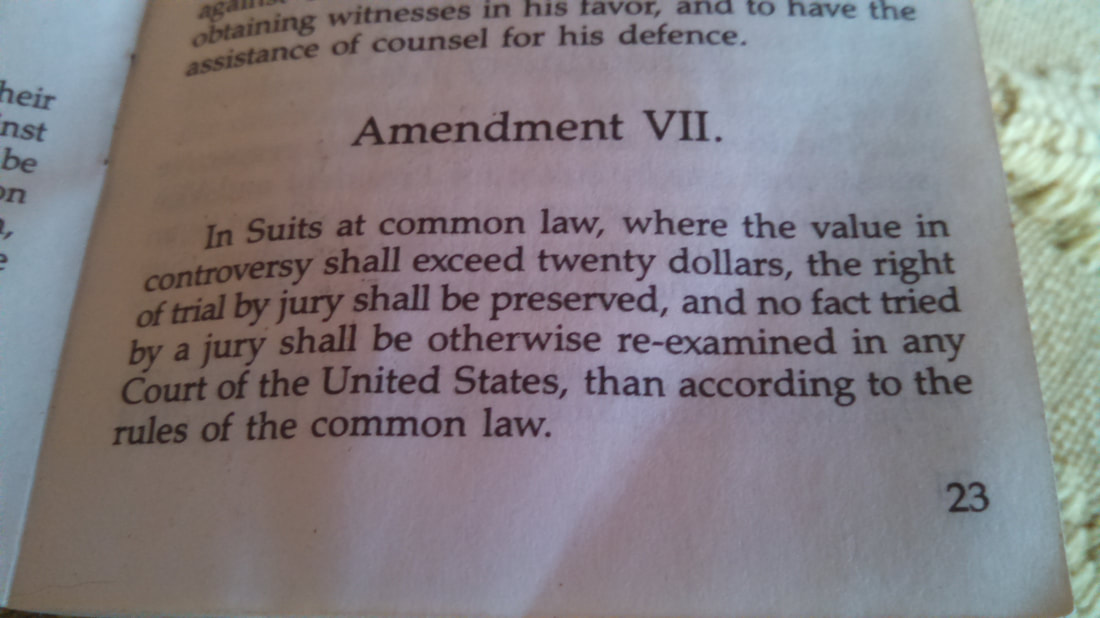 The twenty dollar right in the US Constitution, Amendment VII The twenty dollar right in the US Constitution, Amendment VII One gathers what another spills / We the People / Show some spirit / For constitutionalism / For the law that makes We the People We the People / Every ten years If you care to, ask yourself what you are doing for We the People? What part are you playing? If the answer is nothing (no part) and that’s okay with you, then okay. If the answer is nothing and that’s not okay, then do something to support the Constitution, our supreme law and the thing that makes us We the People, constitutionally reborn every ten years (enumeration / census). Article 1, Section 2, Clause 3 and the 7th Amendment are numerical avenues of approach for those of constitutional spirit ~ a spirit for constitutionalism. One could start by asking representatives (at all levels) if they support the US Constitution; they’ll say yes, of course, so then ask them the next question, the one about representing We the People by the “thirty Thousand” ratio or the one about the twenty dollars in the 7th Amendment: that will begin a conversation. If they support constitutionalism they are obliged (by citizenship and law) to help; if they don’t help, then they aren’t supporting the Constitution. If you don’t support the US Constitution, are you even still American? If so, how? The representation usurpation ends when We the People want it to: if not now, what more do We need to see? The Preamble, where our ideals are shown in high spirits and fulfillment waiting, is a We the People rally point; it reads like a dream, perhaps a dream we need to dream again … We the People of the United States, in Order to form a more perfect Union, establish Justice, insure domestic Tranquility, provide for the common defence, promote the general Welfare, and secure the Blessings of Liberty to ourselves and our Posterity, do ordain and establish this Constitution for the United States of America. Tomorrow is 7/20; perhaps make a moment for Amendment VII, establishing Justice and insuring domestic Tranquility; read something, share something, or discuss with someone the implications of such a right hiding in plain sight (in the US Bill of Rights) and nearly 100 percent ignored. For ourselves and our Posterity. *Next Up: Friday 11 August and some receptor science ~ The Neurotransmitter Acetylcholine: Tobacco (Nicotine) Soldiers Soldiering. Posted by Bryan W. Brickner 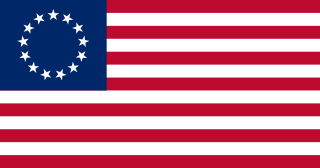 “Regulations Lately Made Concerning the Colonies” The lead-in was the title for a 1765 British Empire executive order concerning the colonies; this would have pertained to all colonies, not just the North American ones. The regulations stated: “All British subjects … are virtually represented in Parliament; for every member of Parliament sits in the House, but as one of that august Assembly by which all the Commons of England are represented.” So Virginians with names beginning with George, Thomas and James, for example, should give thanks that they were virtually represented in Parliament by a British commoner (which defines them as colonial commoners). There was no need for someone from Virginia, or any other colony, according to the Crown, to actually be in Parliament; the point being that Washington, Jefferson and Madison were being “virtually represented” by other commoners in England. The 1765 regulations continued: “The colonies and all British subjects whatever, have an equal share in the general representation of the Commons of Great Britain, and are bound by the consent of the majority of that House, whether their own particular representatives consented to or opposed the measures there taken, or whether they had or had not particular representatives there.” (Italics added.) One can see the political seeds of No Taxation Without Representation in the last part of that regulation – “whether they had or had not particular representatives there” – and the seeds of rebellion as well. Virtual representation was Crown representation. *Next Up: Wednesday 28 June and a 2020: Putin Knows. For further reading see Section 3 of Chapter 1, “Revolution – a sovereignty of the people,” in Article the first of the Bill of Rights (2006). Posted by Bryan W. Brickner |
AuthorBrickner has a 1997 political science doctorate from Purdue University, cofounded Illinois NORML in 2001, and was a 2007 National NORML Cannabis Advocate Awardee. He is also publisher and coauthor of the 2011 book banned by the Illinois Department of Corrections – The Cannabis Papers: A Citizen’s Guide to Cannabinoids. Archives
November 2019
Categories
All
|
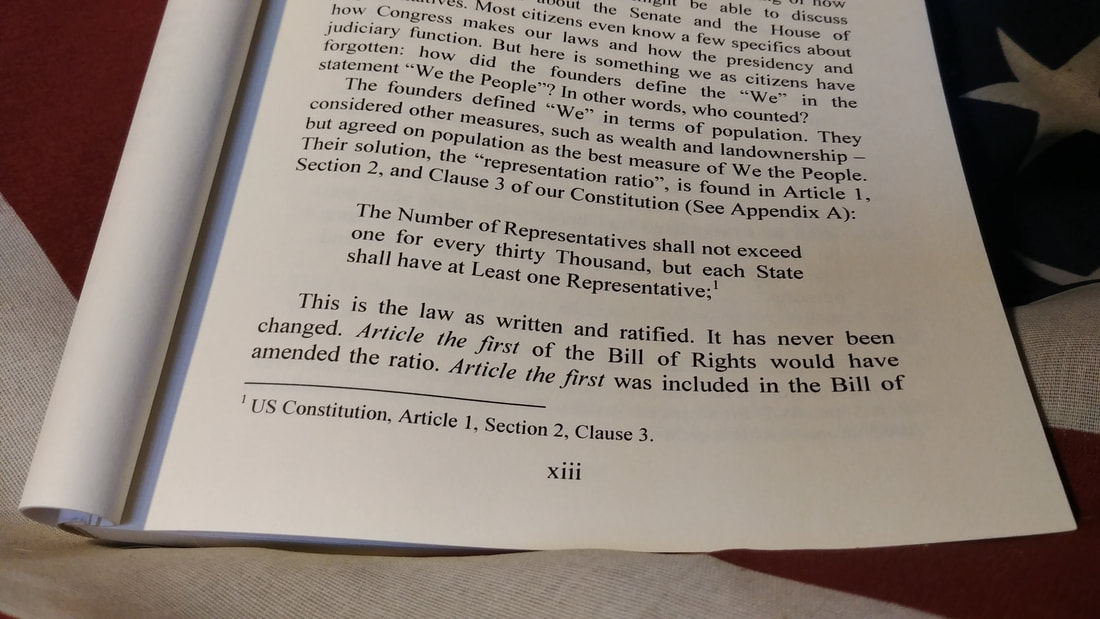
 RSS Feed
RSS Feed
